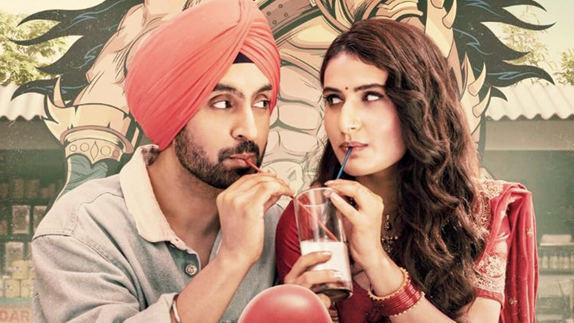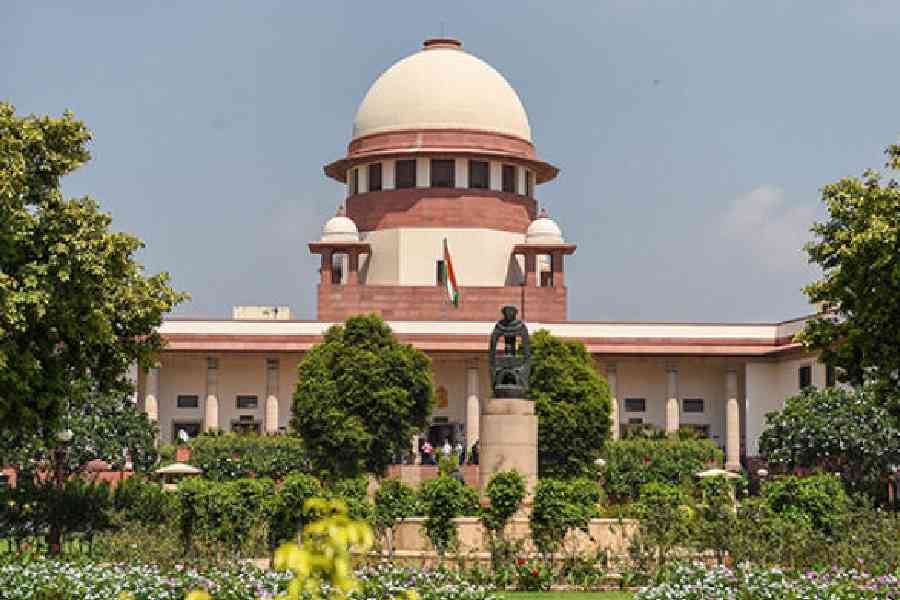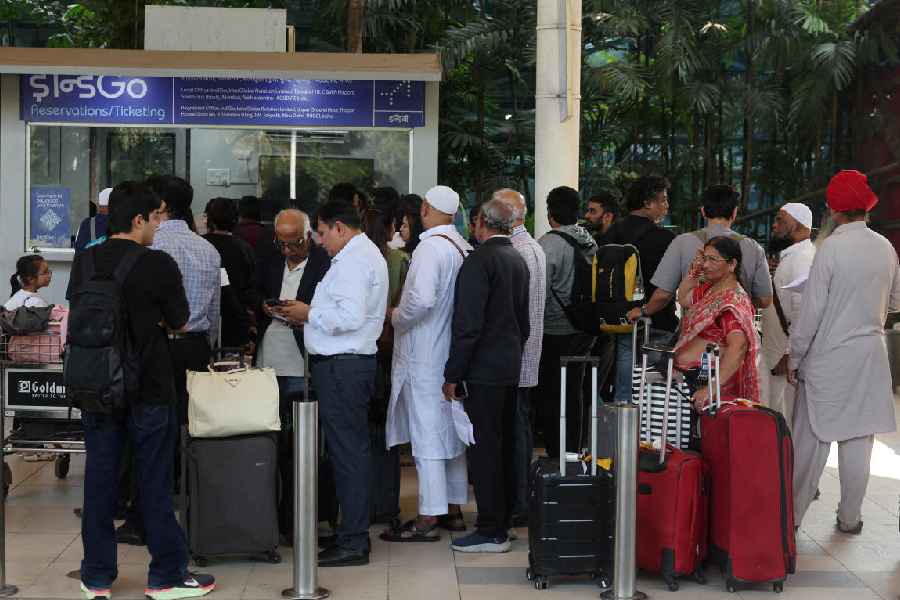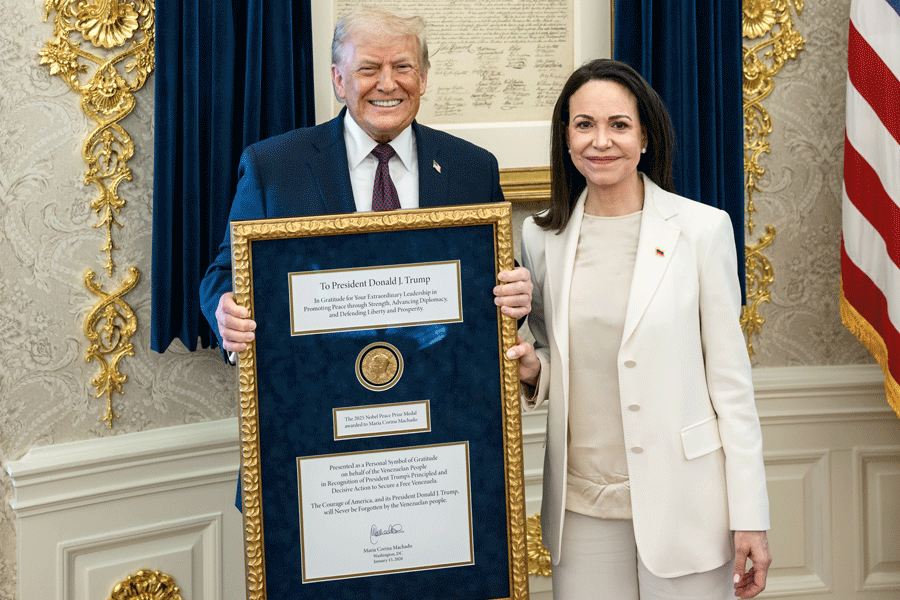There is a character called Suraj. There is another called Mangal. And this is a film that has quite a bit to do with weddings, with astrology figuring prominently. Suraj Pe Mangal Bhari is pretty innovative with its title. But that’s just about it. Given that it’s the first Bollywood film to release in movie theatres since March, Suraj Pe Mangal Bhari will, in all probability, make it to a Kaun Banega Crorepati question, but is unlikely to make much impact beyond that.
Director Abhishek Sharma — the man who earned his comedic chops with Tere Bin Laden a decade ago — attempts yet another satire with this film. Looking to highlight the chasm between locals taking pride in their culture and language and migrants from other parts of the country arriving in the Maximum City with dreams in their eyes, Suraj Pe Mangal Bhari is set in 1995. The year is significant, for that’s when Bombay became Mumbai.
Representing the quintessential Marathi manoos is Madhur Mangal Rane (Manoj Bajpayee), a ‘wedding detective’ who snoops around prospective grooms and has acquired the reputation of nipping many a budding marriage in the bud. Mangal invites the ire of Suraj Singh Dhillon (Diljit Dosanjh), the scion of a dairy business whose father (played by Manoj Pahwa) made Bombay his home many decades ago.
Suraj and Mangal find themselves at loggerheads when the latter nixes a marriage proposal by painting the former as wayward and perverse. Thrown into this game of upmanship is Tulsi (Fatima Sana Shaikh), Mangal’s sister who Suraj has given his heart to.
Suraj Pe Mangal Bhari, despite its ambition to be a social commentary of sorts, is too simplistic in its storytelling. Setting the film 25 years ago means that the makers feel that they can get away with words and moments that are downright sexist. In an early scene, Suraj says that he’s looking for a partner who stays put in both the kitchen and the bedroom (which, of course, sounds far more crass in the film and is clearly lost in translation here).
What also doesn’t work is the heightened melodrama, a story which has very little meat and a climax that arrives two hours too late.
To be fair, the first hour isn’t half bad. Diljit has natural comic timing and manages to make his Suraj fun, especially when he breaks into his half-broken English. Manoj Bajpayee, who hasn’t really been given a chance to showcase his skills in comedy, steals the show in his various impersonations — Maharashtrian housewife to roadside beggar to even James Bond — working undercover as a ‘sleuth’. The man also shows us that he’s got a move or two early on in the peppy nightclub number Basanti.
The film’s watchability factor, however, is shortlived. Things get heavy when Suraj Pe Mangal Bhari veers into serious territory, attempting to make half-hearted comments on the insider vs outsider debate and female emancipation. The film’s messaging is muddled — on one hand, it bats for women having the right to choose what they want to do in life; on the other, it doesn’t pause a second in cracking sexist and ageist jokes.
Given the number of shows they have lined up for it, multiplexes are probably banking on Suraj Pe Mangal Bhari to draw audiences back to the theatres. While that may or may not happen, the mid-budget film, which would have not been given such royal treatment by exhibitors in a pre-Covid world, is a winner even before it hits screens. The pandemic, clearly, is a great leveller. In more ways than one.











